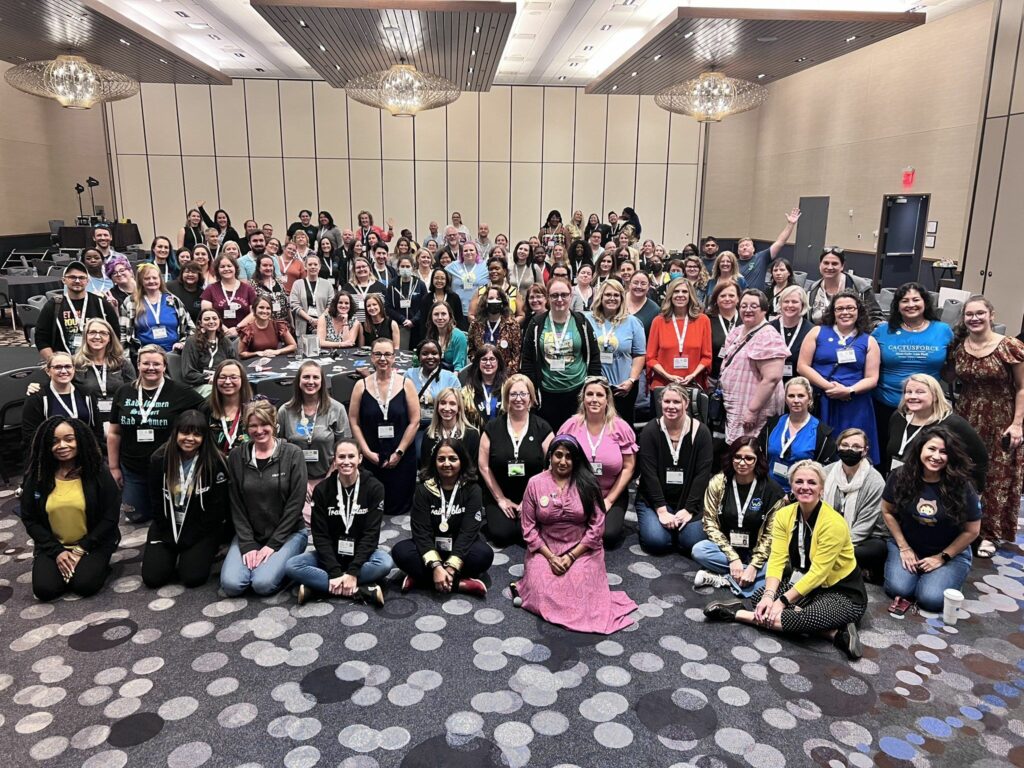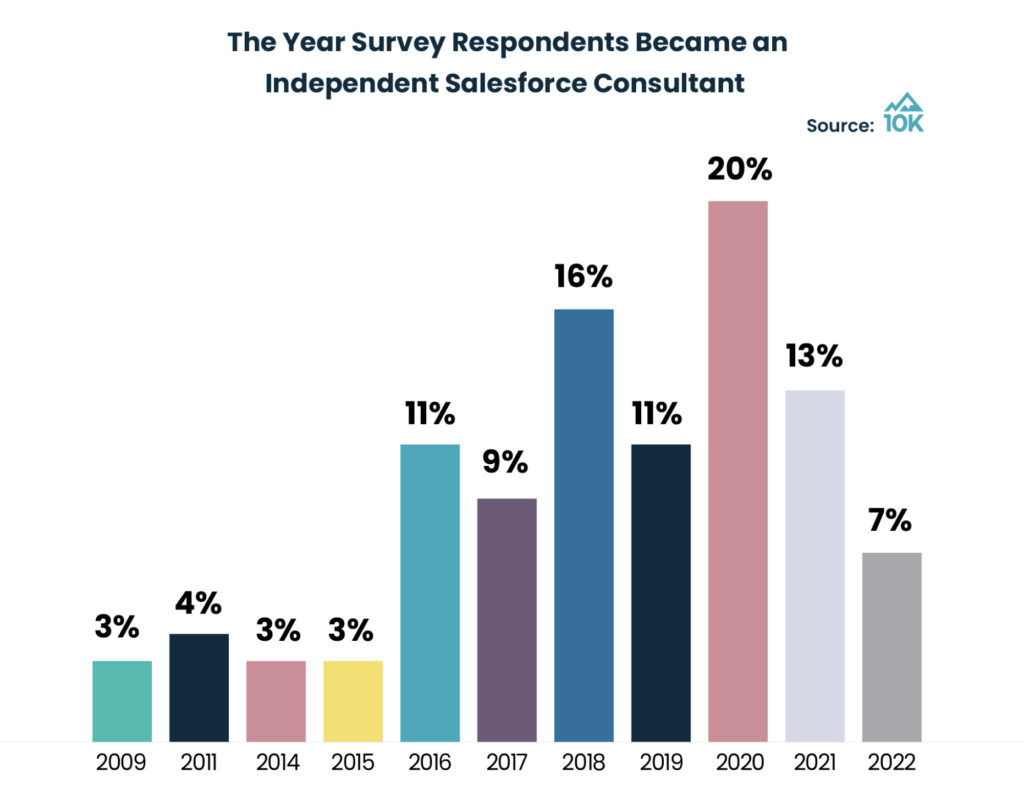It’s been seven years since I started 10K – an on-demand Salesforce consultancy built for the new way people want to work. Every year we get to celebrate a business anniversary is truly an honor. It’s also fun to recognize the serendipitous timing of 10K’s anniversary and its alignment with our mission – Independence Day.
Our mission is to give people the freedom to do more of the work they love. For Salesforce customers, that means building solutions that speed innovation and take their business to new heights. For our community of independent Salesforce experts, it’s about providing exciting projects and a support system to help them thrive as entrepreneurs.
Our team is thankful for the major milestones, from signing our first contract in 2016 to growing our global expert community by 143% and hiring three impactful internal team members over the past year. We are also grateful for the wonderful people we are privileged to work with every day. It feels great to love your work. And we want to help more people to achieve that, too.
So, as I reflect on our past seven years of business, here are the most important lessons I’ve learned since starting 10K:
1. Your first hires have to be passionate about your mission.
These are the people that will set the tone and foundation for your company’s culture. Sharing genuine excitement about the vision will lead to more innovation, collaboration, and growth. Don’t rush the hiring process just to fill seats. In the early stages of building a new business model, passion trumps experience.
2. The best type of loan is interest-free, and it’s called profit.
Too many businesses put growth ahead of profit. Growth proves you’ve developed a good idea or product. Profit proves you’ve developed a good business model. If you can do both effectively then you know you’re really onto something.
3. A brilliant solution to the wrong problem is still the wrong solution.
It’s easy to spend a lot of time chasing what seemed like a good idea without first fully vetting the reason why. Don’t be afraid to rumble with your team and ask the tough questions that reveal the true problem that needs solving.
4. It’s okay to start small and stay small for a while.
It’s not a badge of honor to give up a large chunk of your equity to investors or hit $1M in revenue your first year. The real badge of honor comes years down the road when your business is humming along, successfully and sustainably.
5. Your team will not always do things the way you would have done them.
And that might make you uncomfortable. But it’s your job as a leader to give them space – to make decisions for themselves, to succeed and fail on their own, to take ownership of their outcomes. Creating that space will help all of you grow.
6. No matter how much you think you’re zeroing on what’s important, there is always room to focus more deeply.
I remember at a 10K leadership meeting four years ago, one of the themes I brought to the team was “Focus.” I realized that I had spread our priorities so thin that we weren’t excelling at any of them. When you pick the right things that truly differentiate your business, that’s when you can really move the needle.
7. When you find customers whose problems are highly aligned with your go to market strategy, do everything you can to keep them for life.
As a startup, every customer you earn the right to work with makes a significant impact on your business. That’s why picking the right customers to invest in early is so important. If you are lucky enough to find a few who take full advantage of your offerings, are great to work with, and who can help you further iterate on your business model – do everything you can to keep earning their business! They will be the foundation on which your future business is built.
Independents Week 2023
Join us in celebrating Independents Week 2023! Stay tuned to our LinkedIn, where we will feature the stories of 10K Experts who bet on themselves to build their dream job and change their lives with independent consulting.





